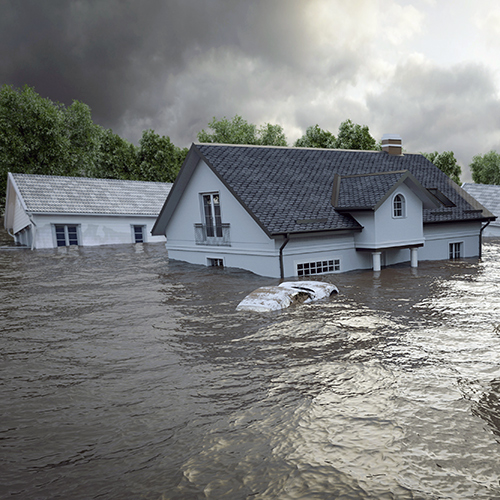



Hot Health Topic
Women Disproportionally Affected by Mysterious Condition, Long COVID-19
Most people with COVID-19 recover completely within a few weeks, but some experience lingering symptoms that continue beyond four to eight weeks after the initial viral infection. These individuals are referred to as COVID-19 long-haulers and have a condition sometimes referred to as long-haul COVID-19 or long COVID-19. Long COVID-19 sufferers can be younger and have initially experienced only mild COVID-19 symptoms.
Recently, the National Institutes of Health (NIH) has given this condition the alternate term Post-Acute Sequelae of SARS-CoV-2 Infection, or PASC. Some in the medical community consider patients to have the syndrome if they continue to have symptoms four to six weeks after the initial infection, while others say 12 weeks.
Long COVID-19 can affect individuals in multiple ways. Neuropsychiatric symptoms include brain fog, fatigue, anxiety, depression, PTSD, and headaches. It can also cause permanent damage to the lungs or heart by leading to persistent shortness of breath and chest pain. Patients have also been seen with ongoing kidney dysfunction and newly diagnosed or worsening diabetes.
We interviewed Noah Greenspan, the founder of Pulmonary Wellness and Rehabilitation Center in Manhattan and a Board-Certified Clinical Specialist in Cardiovascular and Pulmonary Physical Therapy with over 25 years of cardiopulmonary rehabilitation experience. He has been treating COVID-19 patients for over a year, and by May 2021, he has treated 300 COVID-19 long-haulers. He describes his patient population as about 90% women in their 30s, 40s, and 50s experiencing a much more chaotic pattern of exacerbation and remission of COVID-19 symptoms. The majority of his patients are white women, but recognizing that significant segments of the non-white population are disproportionately affected by COVID-19, he hopes to bring awareness concerning COVID-19 long-haulers and its impact on women’s health.
Greenspan recalls that in March 2020 he started getting referrals for severe COVID-19 patients, and by May 2020, COVID-19 long-haulers. Due to the overburdened hospital systems at the time in New York City, these patients were initially told that they were too young or not sick enough to require hospitalization. He speculates that their symptoms may be a reaction to not getting the care that they needed, or not otherwise being in a position where medical teams could quell the immune system overresponse.
While research is ongoing, most of what is known about long COVID-19 is based on reports from patients themselves. Greenspan notes that the grassroots efforts of people actually going through COVID-19 is really what moved the needle forward in terms of treatment and research. Patients were demanding that the medical community get on board. A patient-led survey with data from 56 countries showed that 96% of patients reported symptoms beyond 90 days. Survey data from Wuhan, China showed that more than 75% of people hospitalized for COVID-19 between January and May 2020 continued to report at least one symptom six months after the onset of their illness.
Despite the fact that this is still a developing phenomenon, Greenspan is hopeful for the future of his long COVID-19 patients. He says, “I am definitely seeing our community get better, albeit very slowly. This is not something to power through; we are on COVID’s timeline.”
Surprisingly, Greenspan has seen a few long COVID-19 patients claim to get better after the vaccine – recent studies show that as more people become vaccinated, 30%-40% of COVID-19 long-haulers have been reporting improved symptoms since becoming vaccinated. There is a lot left to learn via larger-scale studies, but researchers hypothesize that the vaccine may help the immune system fight off the remaining virus in the body or stop a harmful immune response. About 10%-15% of COVID-19 long-haulers report feeling worse after vaccination, and some don’t experience any changes at all. However, vaccination will help protect long-haulers from reinfection. Greenspan recommends all eligible people, long-haulers included, get the COVID-19 vaccine to prevent infection or reinfection.
If you think you have a post-COVID-19 condition, talk to your healthcare provider about options for managing or treating your symptoms. Seek public health resources for support. Post-COVID-19 care clinics are opening at medical centers across the United States to address patient needs. We also encourage you to join support groups for COVID-19 long-haulers; many of these groups are connecting virtually not only to support individuals experiencing long-hauler symptoms but to compile data to inform the medical community on this new syndrome. Contact your physician for information on local COVID-19 and long-haulers support groups.
While the country is seeming to move towards some semblance of normalcy, it is important to remember that multiple newer variants of COVID-19 are emerging and circulating in the United States. Some of these variants cause more severe disease, are more easily transmitted between people, and do not respond as well to currently available COVID-19 therapies. It remains important to protect yourself from COVID-19 infection both due to the inherent risks of contracting an acute case of COVID-19, but also to avoid long COVID-19. The CDC advises:
- Avoid crowds and poorly ventilated indoor spaces.
- Get a COVID-19 vaccine when it is available to you.
- Stay 6 feet apart from others who don’t live with you.
- Wash your hands often with soap and water. Use hand sanitizer if soap and water aren’t available.
- Wear a mask that covers your nose and mouth to help protect yourself and others.
Citation: Huang C, Huang L, Wang Y, Li X, Ren L, Gu X, Kang L, Guo L, Liu M, Zhou X, Luo J, Huang Z, Tu S, Zhao Y, Chen L, Xu D, Li Y, Li C, Peng L, Li Y, Xie W, Cui D, Shang L, Fan G, Xu J, Wang G, Wang Y, Zhong J, Wang C, Wang J, Zhang D, Cao B. 2021. 6-month Consequences of COVID-19 in Patients Discharged From Hospital: A Cohort Study. Lancet. Jan 16;397(10270):220-232.

Environmental Health
Climate Change Impacts Your Health
The Earth’s changing climate affects our health and well-being, making many diseases and conditions worse. The planet’s warming temperatures may also introduce pests and pathogens into new regions and communities. As the world warms, oceans expand, and the sea level rises. Floods and droughts become more frequent and intense. Heat waves and hurricanes grow more severe. Changes in the greenhouse gas concentrations and other drivers alter the global climate and bring about a wide range of health consequences for our families and communities.
The environmental impact of climate change may lead to air pollution and extreme weather patterns such as heat waves, changes in precipitation, flooding, and droughts. These weather patterns may impact our physical, social, and psychological health. Adverse health effects caused by climate change include chronic and communicable disease such as asthma, respiratory disease, allergies, cancer, cardiovascular disease, malnutrition, human development issues, mental health and stress-related disorders, as well as neurological, vectorborne and zoonotic, foodborne, and water-related illnesses.
From the coast to the mountains, all areas of North Carolina have been impacted by storms and extreme weather patterns. These include heavy winds, thunderstorms, floods, and storm surge leading to extensive damage and threatening human health. The resulting water damage to homes may cause mold to grow, which may worsen our health. Mold may release toxins and cause neurological disease.
North Carolina’s most vulnerable populations including older adults, children, and people with underlying health conditions may face a greater risk of disease with climate change. Yet, we can take steps to reduce climate change, the harm to our health, and that of future generations. Some personal steps can benefit the environment and reduce disease at the same time. Physical modes of transport such as biking or walking can reduce air pollution and encourage physical activity, which can reduce obesity, diabetes, and heart disease. For more information on disease prevention, visit the Centers for Disease Control and Prevention website.
Start your journey to health by being informed and prepared. The Atlantic Hurricane Season runs from June to November. Learn more about the impact of climate change on human heath by going to these credible sources:
- Centers for Disease Control and Prevention
- National Institute of Allergy and Infectious Diseases
- National Weather Service
- North Carolina County Health Departments
- North Carolina Department of Health and Human Services
- U.S. Department of Health and Human Services
Share your passion and commitment with friends and family to reduce climate change and promote healthy lives and more sustainable communities.
Citation: Empting LD. 2009. Neurologic and Neuropsychiatric Syndrome Features of Mold and Mycotoxin Exposure. Toxicology and Industrial Health. Oct-Nov;25(9-10):577-81.
Insects and Ticks
The earth’s warmer temperatures also create conditions favored by pests and insects such as ticks, fleas, and mosquitoes. These vectors can transmit serious infectious diseases between humans or from animals to humans.
Prevention is the best strategy to prevent bites and illness from ticks and other insects. Use environmentally safe bug spray to avoid tick and other insects and cover exposed skin with long-sleeved shirts, long pants, and hats.

Nutrition Corner
Lemon Shrimp Orzo
Servings: 8 • Total time: 30 minutes
Nutrition Facts: 1 cup: 367 calories, 11 g fat (3 g saturated fat), 80 mg cholesterol, 808 mg sodium, 44 g carbohydrates (1 g sugar, 10 g fiber), 22 g protein.
This healthy recipe is tasty, refreshing, and family-friendly. It is low in fat but high in flavor and filling! Enjoy this dish any time of the day - hot or cold. According to the Harvard University School of Public Health, many ingredients in this recipe - lemon juice, onion, garlic, fresh arugula, olives, and fresh basil leaves - contain nutrients that may assist in boosting the immune system (362KB). You can include as many vegetables as you like in this recipe. Feel free to add or substitute any meat of your choice. A little goes a long way!
Remember to make small steps to improve your health, by choosing whole grains instead of refined grains. For this recipe, consider using riced cauliflower in place of whole wheat orzo pasta.
Ingredients
- 2 tablespoons olive oil
- 1 small onion, chopped
- 2 garlic cloves, minced
- 3 1/2 cups reduced-sodium chicken broth
- 1 pound uncooked whole wheat orzo pasta
- 1 cup water
- 1 pound uncooked shrimp (31-40 per pound), peeled and deveined
- 4 cups fresh arugula
- 3 tablespoons lemon juice
- 1/2 teaspoon salt
- 1/4 teaspoon ground pepper
- 1/2 cup pitted Greek olives, halved
- 1 1/2 cups crumbled feta cheese
- Fresh basil leaves
- In a large skillet, heat oil over medium-high heat. Add onion; cook and stir until crisp-tender about 3-4 minutes. Add garlic and cook 1 minute longer.
- Stir in broth, orzo, and water. Bring to a boil and reduce heat. Simmer, uncovered, until orzo is al dente, 8-10 minutes.
- Stir in shrimp, arugula, lemon juice, salt and pepper.
- Cook and stir until shrimp turn pink, 4-5 minutes.
- Stir in olives. Sprinkle with feta and basil leaves.
- Serve hot or cold.
Copyright © 2017, Trusted Media Brands, Inc. and its licensors. All rights reserved.

The Reading Nook
Summer 2021 Featured Book Selection
In this issue, we are introducing an informative and intriguing children’s book on climate change. We encourage you to explore this book with your young loved ones to help them learn about the impacts of climate change. Reading this book together presents a great opportunity to introduce children to important environmental topics that impact human health and can affect them throughout their lifetime.
Reading with children has many positive impacts on their cognitive development, including vocabulary expansion, language development, and reading skills. Reading with children also presents an opportunity for parent-child bonding. Don’t delay, start reading with your children today!
What Is Climate Change?
Author: Gail Herman
Illustrator: John Hinderliter
Summary: The earth is definitely getting warmer. There's no argument about that, but who or what is the cause? And why has climate change become a political issue? Are humans at fault? Is this just a natural development? While the vast majority of scientists who study the environment agree that humans play a large part in climate change, there is a counterargument. Author Gail Herman presents both sides of the debate in this fact-based, fair-minded, and well-researched book that looks at the subject from many perspectives, including scientific, social, and political.

Recenter, Refocus, Recharge
Wellness
Maintaining mental health wellness is vital to your overall health. Optimal mental health is not just the absence of mental illness but includes emotional, psychological, and social well-being.
Our normal routines have been disrupted by the COVID-19 pandemic. With many of us teleworking from home, our work and personal lives intersect more frequently. Work/life balance can be a juggling act with work responsibilities, family, and other activities. Self-care is important to your mental health and can aid in avoiding burn out. As we are heading towards returning to normalcy, obtaining and maintaining your work/life balance may look different from the start of the pandemic. Those who have been home will be venturing out in the public again, which can heighten anxiety.
Emotional wellness is essential to being productive in all aspects of life. Take time to review these effective tips from the National Institute of Mental Health to reclaim control of your life and achieve a positive balance.
- Adopt healthy social networking practices: Person to person contact is important for your overall well-being. Stay connected with your family, friends and social networks.
- Avoid burnout: Give yourself a break, do what you can. Take time to unplug from work activities.
- Be efficient with your time: Develop and implement a daily schedule or routine.
- Divide and conquer: Try to be mindful of what you have accomplished at the end of the day; not what you have been unable to do.
- Don’t over commit: Learn to say no to new tasks if you start to feel like you’re taking on too much.
- Meditation: Explore relaxation, free online meditation classes, wellness programs or apps, which may incorporate meditation, muscle relaxation, or breathing exercises. Schedule regular times for these and other healthy activities you enjoy such as journaling or listening to music. Remind yourself daily of things you are grateful for. Be specific. Write them down at night or replay them in your mind.
- Set goals each day: Decide what must get done now and what can wait.
- Stay active: Engage in some exercise activity for a few minutes every day that is not too strenuous for you. Just 30 minutes of walking every day can boost your mood and improve your health.
- Take a break outside: Gardening can be therapeutic and can give you a chance to enjoy the outdoors.
- Take advantage of an Employee Assistance Program (EAP) (if available at your job): Many organizations offer resources through an EAP, which can save you time by providing guidance on issues like where to find a daycare center and caretaking for an elderly parent, as well as referrals to mental health and other services.
- Use your resources: Please find more mental health resources.

Multimedia Showcase
Featured Podcast
Featured Podcast
Interviewee: Perry Sheffield, M.D.
Children and the Changing Climate, Released on July 7, 2016
The U.S. Global Change Research Program's 2016 Climate and Health Assessment strengthens understanding of the growing risks that a changing climate poses to human health and welfare. In this podcast, we take a close look at how climate change affects one particularly vulnerable population: children.

Sister to Sister
Sister to Sister Advocacy Corner
Our Sister to Sister Advocacy Corner highlights women who are courageously overcoming their health struggles, advocating for their own health, seeking to live healthier lives and have a word of advice and encouragement to share with their community of sisters.
This month we highlight Mrs. Riley, one of our very own Women’s Health Awareness (WHA) Steering Committee members. She is a wife, mother, community health advocate, public servant, and a survivor of COVID-19. Now in recovery she is living as a COVID-19 long-hauler.
In July 2020, Mrs. Riley noticed that she had developed symptoms that were consistent with those outlined by the Centers for Disease Control and Prevention (CDC) for COVID-19. She immediately followed CDC protocol, was assessed by her family physician, and tested for COVID-19 the same day. After receiving her positive result and with rapidly declining health, she was hospitalized. After her discharge, Mrs. Riley went through many months of intensive cardiopulmonary rehabilitation. She now follows-up regularly with care providers as part of her post-acute COVID-19 (long COVID-19) recovery and maintenance plan.
For many COVID-19 survivors, development of a recovery plan is necessary to achieve improved overall health. This plan requires self-advocacy and multidisciplinary input, to include all providers involved in the patient’s care. Mrs. Riley developed her own plan of care post cardiopulmonary rehabilitation to maintain her clinical health improvements. She found the programs at Duke Integrative Medicine, The Mindfulness Center at Brown University, and the Pulmonary Wellness Foundation to be particularly beneficial.
As a part of her COVID-19 recovery plan, Mrs. Riley is actively engaged in a mindfulness practice. She said, “mindfulness helps you to extend loving kindness to yourself and to articulate your needs but to have realistic expectations for yourself and those around you.”
To help increase her quality of life post-COVID-19 she participates in a COVID-19 long-haulers support group. She said, “joining a long-hauler support group was important because people [who have not had COVID-19 and even physicians] may not understand what you go through, and you may not even understand what you are going through.”
Long COVID is a newly observed syndrome of COVID-19 and talking with others who are experiencing similar symptoms and issues under the guidance of a trained therapist is helpful in putting things in perspective and knowing what to do. “It also helps to know that you are not alone and what you are feeling and experiencing is real,” she added.
While living under immense uncertainty, Mrs. Riley credits her strength to undergo life and rehabilitation after COVID-19 to her faith in God and the support from her community, her church family, immediate and extended family and friends. She is a member of the Durham Alumnae Chapter of Delta Sigma Theta Sorority, Inc., and says “the sorority has been supportive, especially the health awareness committee of the sorority and her Soror, Joan Packenham.” She indicated that the love extended from her community contributed to her resilience.
Mrs. Riley said, “resilience in overcoming COVID-19 is about being engaged in your own health journey and being able to go with the flow of the illness and the recovery.” After battling COVID-19, Mrs. Riley encourages people to also be diligent in following their doctor’s recommendations and sound medical advice.
When asked to leave final words of wisdom to the Women’s Health Awareness community, Mrs. Riley said, “be engaged in your own health care, and follow your doctor’s recommendations. Know your body. Show yourself some grace and focus on being better... a better version of yourself. Rejoice in the fact that you are human and extend to yourself loving kindness.”
There is still so much to learn as it relates to our communities recovering from COVID-19. Mrs. Riley’ s story gives us great hope and helps us to understand that it takes self-initiated health advocacy, great medical care, much support, encouragement and love from our family and community to survive and thrive from COVID-19.

Sister to Sister: Share Your Story
We would love to hear your story! Sharing a story about your personal WHA experiences can provide encouragement and support to others. Make a difference in the life of another by sharing your poetry, song lyrics, inspirational quotes, drawings, or photos. Email your story to WHA or call 919-541-3852 if you have any questions. Your story may be featured in a future newsletter!

Let's Stay in Touch











